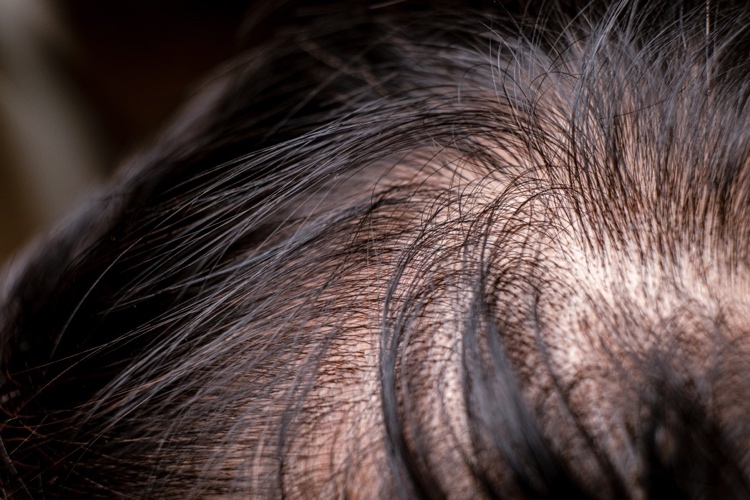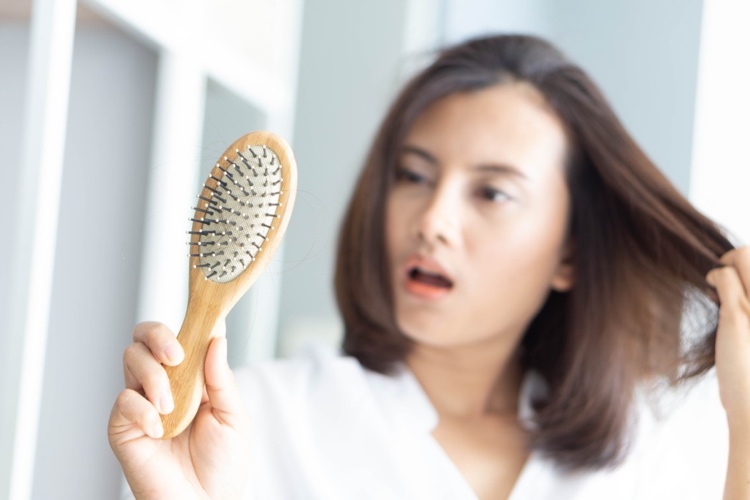Hair loss after Covid 19 due to stress – what can you do?
A connection between COVID-19 and hair loss is hardly to be expected – after all, the coronavirus causes a respiratory disease. However, more and more people are reporting hair loss as a result of the disease.
This hair loss comes as no surprise to doctors and is known as telogen effluvium. This is a temporary condition that affects the hair follicle growth cycle. Telogen effluvium can be caused by physiological stress, e.g. after an illness, high fever, surgery, childbirth or after a serious psychological stressor such as the loss of a loved one. Diffuse hair loss typically manifests itself around three months after the stressful event, and affects both men and women.

To understand why hair loss can occur after Covid-19, it helps to first understand the hair growth cycle. Every hair goes through a life cycle with 3 phases:
- The anagen phase (growth phase) – the hair is formed in the follicle in the scalp and becomes longer and thicker. This phase lasts about 2-6 years.
- The catagen phase (transition phase) – cell division and the supply of nutrients to the hair are stopped. This phase lasts about 2 weeks.
- The telogen phase (resting phase) – this is the phase in which hair eventually falls out. It takes about 3 to 4 months.
85 – 90% of all scalp hair is in the anagen phase. 1 – 2% of the hair roots are in the transition phase. About 10% of our hair is in the telogen or ‘resting phase’, i.e. at the stage when our hair normally falls out. Usually, everyone loses 50 to 100 hairs a day. In telogen effluvium, a larger part of the hair goes into the telogen phase.

While there is no evidence of a coronavirus-specific mechanism that causes hair loss, any serious illness can lead to telogen effluvium – and COVID-19 certainly falls into that category.
Symptoms of COVID-19 include high fever, which has been linked to telogen effluvium. The stress hormone cortisol is also released in higher quantities during severe illness. This in turn leads to accelerated hair loss. Even the psychological stress of contracting the coronavirus can cause telogen effluvium.

COVID-19 has clearly caused stress for many of us, and not just physiologically. The consequences of the Covid-19 pandemic have also increased financial stress, as well as fears and issues related to childcare.
Usually, stress-related hair loss lasts up to six months. It is basically a game of patience because the hair will gradually regenerate itself. If you don’t have patience, you can use a Minoxidil 5% solution. This active ingredient shortens the hair growth cycle by stimulating the dormant hair to go into the anagen phase and grow again.
The post Hair loss after Covid 19 due to stress – what can you do? appeared first on Deavita.com | Home ideas, design, hairstyles, make-up, lifestyle, health and beauty tips.





















